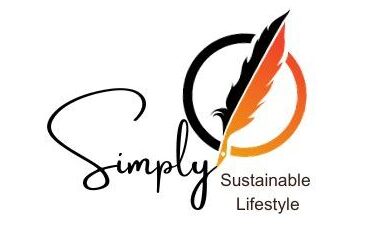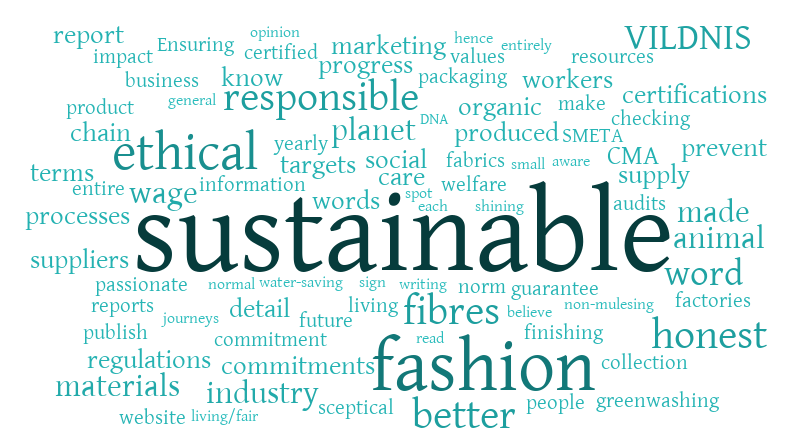What is Greenwashing?
Greenwashing refers to the deceptive practice of companies presenting themselves as environmentally friendly or “green” when, in reality, they engage in actions that are harmful to the environment. This misleading marketing tactic can involve exaggerating or misrepresenting the environmental benefits of a product, service, or company.

Uncovering Greenwashing Practices
Through our research on greenwashing, for an upcoming article, Simply Sustainable has identified numerous companies engaging in deceptive practices. We present this “Thumbs Down” report to ensure you remain informed about these companies, aiding you in making conscious shopping decisions. It’s important to recognize that consumer influence is pivotal in compelling these entities to alter their behaviors and uphold ethical standards.
Innocent Drinks In 2022, Plastic Rebellion called out Innocent Drinks for engaging in insincere TV adverts as a type of greenwashing in the UK. Despite being owned by Coca Cola, one of the world’s top plastic polluters, Innocent Drinks used single-use plastic, contradicting their eco-friendly image portrayed in twee TV cartoon ads featuring animals promoting recycling. The Advertising Standards Authority (ASA) intervened and banned these misleading ads.
Keurig In 2022, The Competition Bureau revealed that Keurig in Canada misled consumers with false recycling claims regarding their single-use plastic coffee pods. Keurig suggested consumers could recycle the pods easily by breaking them open and tossing them into recycling bins, but most Canadian provinces didn’t accept these pods, causing recycling bin contamination issues. The City of Toronto had to remove 90 tonnes of these pods from recycling bins. Keurig faced a $3 million fine and had to rectify the misleading recycling claims on their packaging.
IKEA In 2020, Earthlight exposed IKEA for using illegally sourced wood from Ukraine’s Carpathian region for their beechwood chairs. Surprisingly, this illegal timber was certified by the Forest Stewardship Council (FSC), raising questions about FSC’s credibility. Despite this, IKEA remains among the top brands for sustainability, and FSC’s oversight extends beyond Ukraine.
Windex Between 2019-2020, Packaging 360 and Owen Rosenberg highlighted Windex’s misleading claims about their bottles being made from 100% “ocean plastic,” implying it was salvaged from the sea. However, the plastic used was collected from plastic banks in Indonesia, the Philippines, and Haiti, labeled as “ocean-bound plastic.” Additionally, Windex faced a lawsuit alleging harmful ingredients in their supposedly non-toxic products.
H&M & Fast Fashion In 2021, the Changing Markets Foundation exposed H&M for making insincere sustainability claims, with 96% of their assertions found to be misleading. Despite presenting themselves as environmentally conscious, the reality did not align with their marketing claims, reflecting the prevalence of greenwashing in fast fashion.
Hefty Recycling Bags In 2021, a class-action lawsuit against Hefty Recycling Bags revealed that their claim of handling recyclables was false. The bags were not recyclable and contaminated otherwise recyclable waste, leading to landfill disposal instead.
Ryanair In 2020, the Advertising Standards Authority (ASA) banned Ryanair’s claim of being Europe’s “lowest emissions airline” as misleading. This was yet another case highlighting the tendency of airlines to exaggerate green credentials for marketing purposes.
Shell Shell faced multiple instances of greenwashing. One instance in 2020 involved misleading ads in Bristol, UK, about their clean energy business, leading to a campaign ban by Adfree Cities. Additionally, in 2023, Adfree Cities reported misleading claims about Shell’s involvement in clean energy, underscoring the need for stricter regulation in curbing false messaging from fossil fuel companies.
Unilever Unilever’s Persil brand faced bans from the Advertising Standards Authority (ASA) in the UK in 2022 for making unsubstantiated claims about being “kinder on the planet.” Despite efforts to appear eco-friendly, Persil’s claims lacked clarity and evidence, showcasing the importance of backed-up environmental claims.
HSBC HSBC’s misleading climate ads led to complaints and subsequent bans by the Advertising Standards Authority (ASA) in the UK. While promoting climate-friendly initiatives, HSBC failed to disclose its significant contribution to the climate crisis, highlighting the deceptive nature of their advertisements.
Delta Airlines Delta Airlines faced a lawsuit over their false claim of being the “world’s first carbon-neutral airline.” Despite investing in carbon offset credits and emissions reduction plans, the lawsuit demonstrated the deceptive nature of marketing such claims.
Active Super Active Super, a major Australian superannuation fund, came under scrutiny by the Australian Securities and Investments Commission (ASIC) for alleged greenwashing. ASIC found evidence suggesting discrepancies between AS’s claims of responsible investments and their actual holdings in environmentally harmful businesses, indicating the need for greater transparency in financial institutions’ environmental claims.
We use Affiliate Links to sustain Simply Sustainable Lifestyle’s writing and research. We curate goods and services that enrich the simple and sustainable lifestyle experience. As an Amazon Associate I may earn from qualified purchases Your feedback on products and services, whether great or falling short, is invaluable in aligning recommendations with the blog’s focus.

Here’s a company dedicated to its mission of waste reduction and contributing positively to the community, inspiring others to join in! Explore their offerings here. We’ve tried their product, and it not only cleans our clothes effectively but also feels great to support a company making a positive impact on our planet. Check it out here.
Conclusion:
Being discerning and going beyond surface claims helps distinguish genuinely eco-friendly products and companies from misleading consumers with greenwashing tactics. By examining details and conducting thorough research, one can uncover the true environmental commitment of businesses, ensuring conscious and informed consumer choices.

At Simply Sustainable Lifestyle, we aim to research and curate information, providing you with a reliable resource for your sustainable lifestyle choices. Stay updated with our latest articles by signing up for notifications, ensuring you’re well-informed on sustainability topics.
Feel free to share your thoughts or ask questions in the comment section below. We’re committed to responding to your queries promptly. If we don’t have an immediate answer, we’ll diligently seek the truth and share it with you and our community of readers. Your engagement helps us provide accurate and valuable insights.


